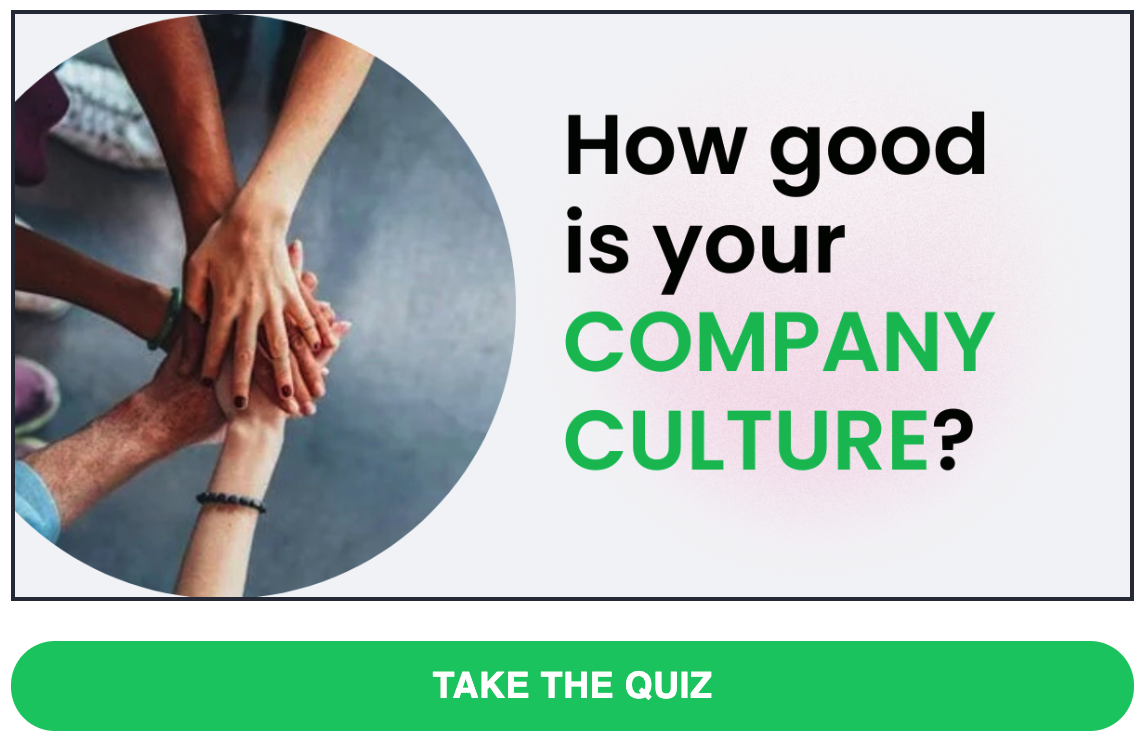Oy, enough with the accountability already.
It’s the single most prominent issue I address in my leadership coaching business.
Some days it seems that every company has accountability issues. And when I say “some days”, I mostly mean Monday through Friday.
Workplace guru Anne Loehr appears to agree with me. According to her exploration, 85% of leaders fail to give their subordinates direction on what they should be working on.
To be crystal clear on this one, if you aren’t guiding your subordinates on what they should be working on, you are not holding them accountable.
Ergo, henceforth, herewith… 85% of leaders don’t hold their subordinates accountable at work.
I’m guessing you can relate to this in some form or fashionista.
Do you work in a place where there is little to no accountability?
You most likely do. There’s an 85% chance.
As you may already know, there are a bunch of issues that result from no accountability at work. This includes:
- Decreased productivity
- Low morale
- Little innovation
- Degrading culture
In other words, lack of accountability at work is bad for business.
But still, 85% of leaders fall victim to it.
Hmm. There must be a reason.
Oh!
I know! I know!!

An Accountability Surprise
I’ve got a surprise for you, cause I know how much you love surprises.
Though you think we are talking about an accountability issue in this article, we aren’t.
Accountability is not the problem.
Accountability is just the symptom.
<Plot twist>
The real problems are:
- Poor decision-making, and
- Fear of conflict
Let’s dive in deeper, shall we?
The Four Requirements For Accountability at Work
There are four required elements to effectively hold others accountable at work. They are:
- A clearly defined outcome
- A date to accomplish it
- A single person responsible
- Consequences for failure
If any one of those four items is missing, you aren’t actually involved in accountability. All four are absolutely required.
I can’t even tell you the number of leaders I’ve talked with who claim they hold others accountable, yet they don’t give a deadline date. Or they don’t give consequences for failure.
That’s not accountability.
Enough already.
The first two requirements (outcome and date) are dependent on your decision-making abilities while the last two (person and consequences) challenge your fear of conflict.
Let’s discuss this a little more.
Pull up a seat. Make yourself comfortable.

The Importance of Decision-Making in Accountability
Accountability starts with defining the outcome you want. But to determine the outcome, you’ve got to first understand your strategic goals.
Once you decide on your strategic goals, you must decide on which of the competing priorities is the most important one towards achieving the overarching goal.
That’s decision-making.
Easy peaz-o, right?
Maybe. But maybe not.
Decision-making is easy when the choices are binary. The answer is fairly straightforward when you only have to decide between yes or no, good or evil, pineapple on pizza or not.
But binary choices aren’t what happens in the real world. And that’s where many leaders struggle.
You most likely have a bunch of different priorities that you’re juggling, many of which you think are all the most important. But you’re wrong.
Though you may have a lot of high-priority items, you can only choose one that is the top priority. Priorities must be in a single file line.
Sorry, Charley.
You simply can’t hold people accountable for multiple, equal priorities. If you try to make people accountable for everything, they’ll succeed at nothing. And that is exactly the problem that got us here in the first place.
Once you figure out the top priority, you need to come up with a date for each person to accomplish their deliverables. This can be a complicated decision for many people.
And complicated things can be scary.
One thing people do when they encounter a scary decision is avoid it. And that, my friend, is why your accountability issue is most likely a decision-making problem.
Which rolls us right up to the fear of conflict.

Fear of Conflict in Accountability
Assuming you’ve effectively navigated around all the decision-making landmines, there is only one more thing you have to do to hold people accountable:
Face up to your fear of conflict.
As I mentioned above, there are two more requirements for accountability:
- Choosing one person to be responsible for the outcome, and,
- Delivering immediate consequences if they don’t follow through
If you’re like many of the leaders I coach with, you are probably nodding in agreement that these are the areas in which you fail.
Welcome to the party.
What I’ve discovered is that the leader who always wants to be liked is the same leader who is challenged to select one person to be held accountable.
They are scared of the conflict that may arise when they force the person to re-prioritize their day.
Well, let me tell you, if you’re scared of having people reprioritize their day, you’re really gonna have an existential crisis when it comes to doling out consequences.
Of the four requirements of accountability, delivering consequences is where the process most often collapses like a jiggly jenga tower.
Consequences can cause conflict.
Conflict can be hard.
But accountability doesn’t happen without consequences.
So it’s time to do hard things.

Your First Step With Accountability
You’ll notice that I didn’t give you any tips or tricks on how to create a culture of accountability.
The truth is, I know the secrets to quickly creating a culture of accountability, but there is too much to explain in a 3-minute read.
Over the years, I have developed a proven method for quickly creating accountability. It is simple to implement regardless of your decision-making and conflict-management prowess.
Most importantly, it works.
It worked for me.
It works for other leaders, regardless of whether you have 1 direct report or 21 of them.
It only takes one hour to transform your entire world for the better.
I’m putting on a MasterClass on Accountability at Work.
April 10, 2024 11am PT / 2pm ET
The first cohort will be FREE but only limited to ten people.
Future MasterClasses may have a fee.
If you’re interested in getting more info on the Free MasterClass or want to know more about other classes, please sign up here.
It’s time to say “enough already” with accountability.
A Somewhat Relevant Quote
“Accountability is the glue that ties commitment to results.“
Bob Proctor – author, lecturer, Canadian

